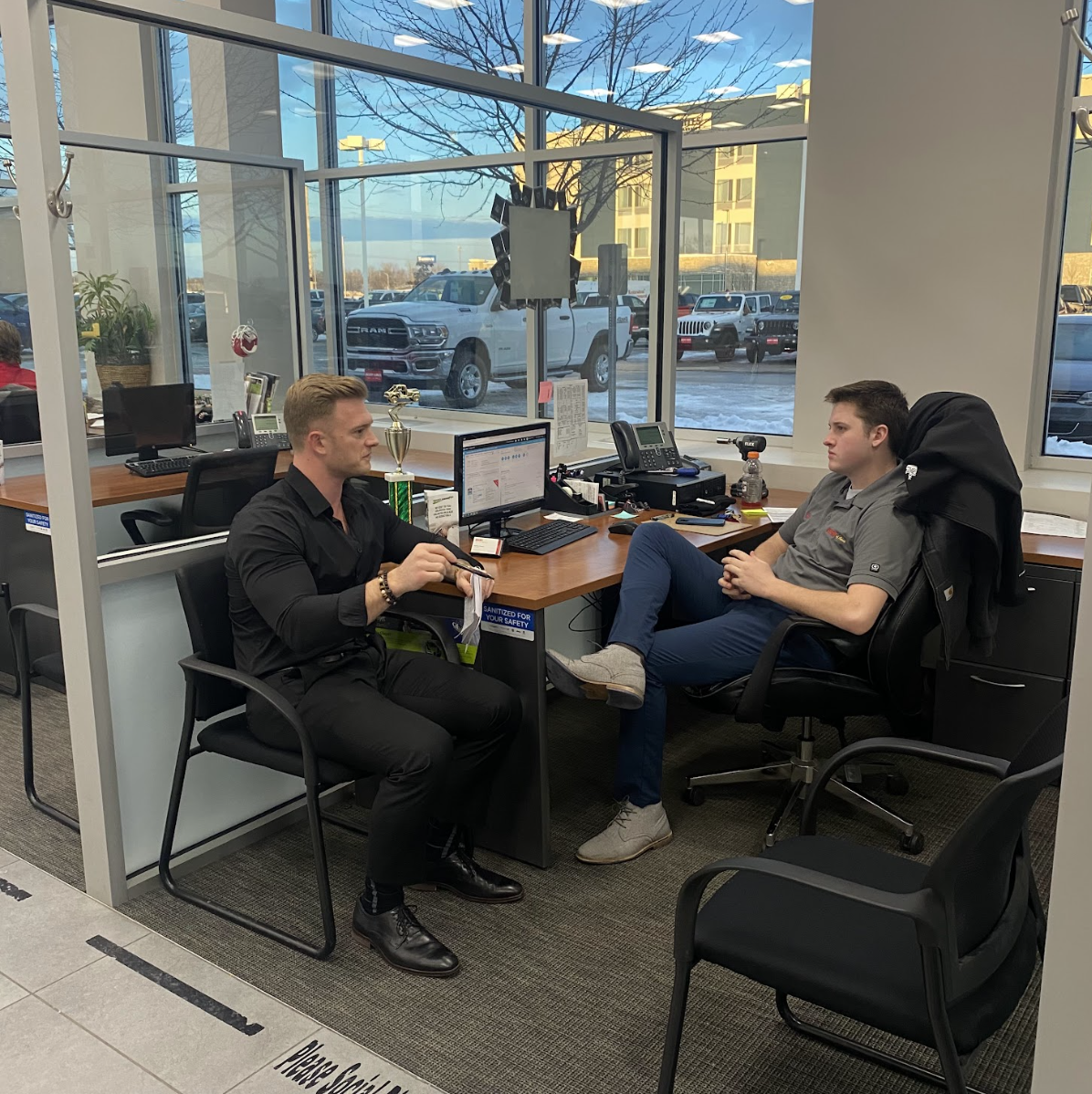The Role of a Skilled Workforce in Transforming Dealership Performance
In today's competitive automotive marketplace, the effectiveness of a dealership is often closely tied to the skills and capabilities of its workforce. A skilled workforce enhances customer satisfaction and drives operational efficiency, ultimately leading to improved dealership performance. In this blog, we'll explore the vital role that a skilled workforce plays in transforming dealership performance and why investing in employee development is essential for success.
Managing Partner, Ian Mathews, doing one on one sales coaching with dealership staff.
Understanding the Importance of a Skilled Workforce
A skilled workforce is foundational to any business, and dealerships are no exception. This section will explore how a skilled team can significantly impact sales, customer service, and overall dealership reputation.
To illustrate, think about the last time you visited a dealership. Did a knowledgeable employee help you make an informed choice? Or did you leave frustrated due to a lack of adequate support? In today’s fast-paced world, customers expect efficient service and expert advice. In the automotive industry, customers have seemingly endless choices in all categories of purchasing, and effective employees can be a key factor to make sure your organization secures their business. A skilled workforce not only meets these expectations but often exceeds them, creating loyal customers who return time and again.
Moreover, a skilled workforce can adapt to new technologies and changes within the industry. This agility is essential for staying competitive, especially when trends shift or new regulations arise. Employees with the right skill sets can leverage technological advancements to streamline processes, ultimately boosting performance at every level.
The Benefits of Investing in Employee Training
Investing in training and development can lead to higher employee satisfaction and retention rates, along with more satisifed customers that will become champions of your dealership in the community. This section will examine the various training methods and how they can translate into better performance for the dealership.
When dealerships commit to employee training, they nurture a sense of belonging and value among their staff. For instance, team members who receive ongoing education feel more confident in their roles, leading to increased productivity and lower turnover rates. Not to mention, this investment pays off in the form of enhanced customer interactions, which directly influences the bottom line.
Implementing structured training programs can also provide staff with the latest industry insights, from emerging trends to advanced sales techniques. Whether through workshops, online courses, or mentorship opportunities, employees are empowered to develop their skills and apply them effectively. This continual growth not only enriches the individual but fortifies the dealership as a whole.
Recruiting for Skills: What to Look For
Not all skills are created equal. Here, we'll discuss the key skills that dealerships should prioritize when hiring, as well as the lasting impact of bringing in the right talent.
In the realm of automotive sales and service, technical knowledge and customer service skills go hand in hand. Dealerships should seek candidates who not only understand vehicles but also exemplify excellent communication and problem-solving abilities. These skills ensure that potential issues are handled quickly and efficiently instead of escalating into larger concerns that can harm customer relationships.
With this said a focus on cultural fit is equally critical. Employees who share the dealership's values and vision are more likely to remain engaged and motivated. That translates to better performance and a cohesive team atmosphere, which is essential for fostering collaboration and driving results.
Creating a Culture of Continuous Learning
A culture that encourages continuous learning and development is crucial for dealership performance. This section will provide tips on how to foster such an environment.
Encouraging employees to pursue additional training or certifications not only boosts their confidence but also enhances the dealership's reputation. By promoting a mindset of lifelong learning, dealerships can remain at the forefront of industry advancements and innovative sales techniques.
In addition to formal training programs, dealerships can create informal learning opportunities through peer-to-peer mentorships. Establishing mentorship programs can significantly impact employee engagement, creating a supportive atmosphere that nurtures both personal and professional growth.
Measuring the Impact of a Skilled Workforce
How can dealerships measure the effectiveness of their workforce? We'll explore various metrics and feedback mechanisms to assess workforce skills and their impact on performance.
One effective way to analyze workforce performance is through customer feedback. Regularly collecting and reviewing customer surveys can provide invaluable insights into areas where the team excels and where improvements might be needed. This feedback loop highlights successful practices and uncovers opportunities for further development.
Additionally, tracking sales performance and employee engagement metrics allows dealerships to gauge the overall impact of their workforce initiatives. These data-driven insights empower dealerships to make informed decisions about future training and recruitment strategies.
The Path to Excellence through a Skilled Workforce
In conclusion, the transformation of dealership performance hinges on the skills and expertise of its workforce. By fostering a culture of continuous improvement and investing in employee training and development, dealerships can optimize performance, enhance customer experiences, and ultimately achieve their business goals. The evidence is clear: a skilled workforce is not just an asset but a critical component of long-term success in the automotive industry.


